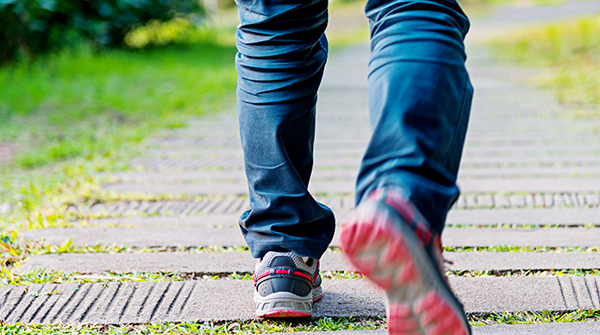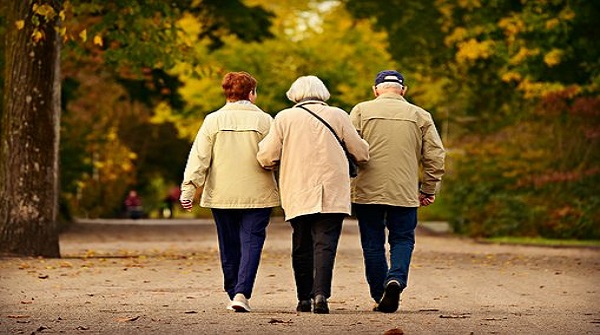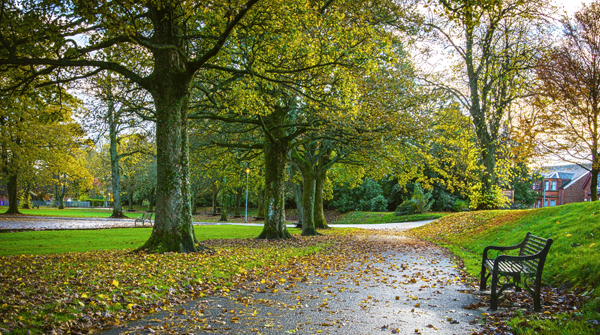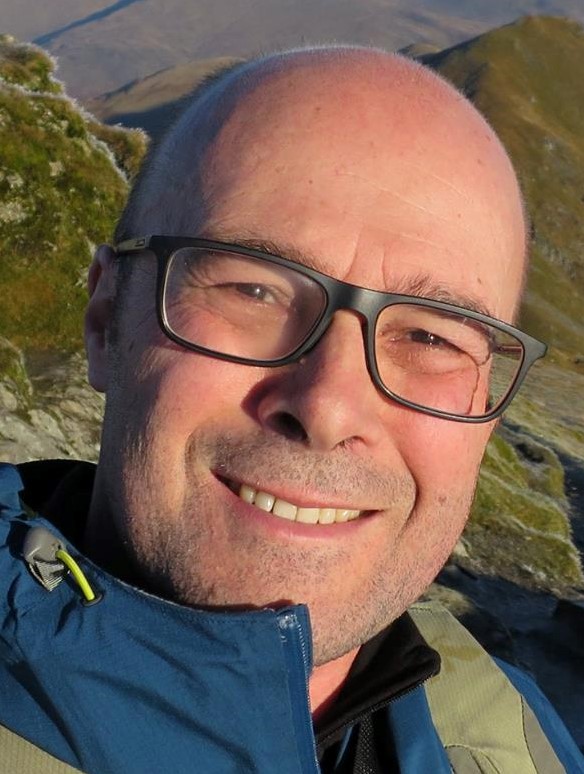Stop scrolling, start strolling
- Brendan Paddy, Director of Ramblers Scotland
- 25 September 2019
- Physical activity
I may just be the best/worst person to tell you about the need for Scroll Free September. Worst because I’d never heard of the RSPH campaign until being invited to write this blog. Best because I’m exactly the kind of person who could do with being a bit more thoughtful about how, where and when I use social media.
Let's review my own smartphone habits...
At the dinner table? Obviously.
In bed? Uh, yep.
In the street such that lamp posts would probably dance out of my way if they could? I’m afraid so.
The result is that my brain is always on, usually positively twitching, and my social media habits reflect this.
So, what’s the alternative? Well for me, hard exercise that requires intense concentration really works to set me free from the siren effect of my phone: flying through rush-hour traffic on my bike (which, coincidentally, was where I wrote most of this blog in my head this morning); watching every foot placement as I hop and skip my way down some Highlands ridge, ideally somewhere with no reception; or rat-running on foot and at speed through every green inch of the business park where I work (although in that case I’m, erm, possibly also trying to beat someone else’s time on Strava).

None of that is going to help most people, most of the time though, not even me. But there is something else that also works for me and potentially for just about everyone else. People interested in health and health inequality tend to focus on the physical benefits of regular brisk walking, understandably so given the impact on heart disease, stroke and cancer. But that’s just part of it. As well as helping to manage physical health problems, walking improves our wellbeing and can help fight stress and depression.

Everyday, brisk walks are something we can do in the company of other people which can help overcome feelings of isolation. They can help us discover new things and care in new ways about the communities around us. And there is a considerable mental health and wellbeing bonus if we can include some green space in these walks, strengthening our connection to the natural world and our desire to protect it for our sake, as well as for its own. It’s because of these benefits that Ramblers Scotland doesn’t just organise big walks in the great outdoors – although we’ve no shortage of those – but also celebrates great urban walking environments with the Britain’s Best Walking Neighbourhood Award. Which was won this year (in case you were wondering) by Falkirk, who’ve seen huge returns on the investment they’ve made in their path network in terms of better health and a stronger local economy.

If, like me, the question you ask yourself when you think about cutting back on social media is what the alternatives are, the answer could be (at least in part) more walks.
Like the one with my nine-year-old son along an old railway track, a stream and then on to the beach, picking blackberries and talking about everything and nothing as we went. Like the one my Ramblers Scotland team recently did when we put the flip charts and post-its in the bin, resisted the temptation to check our phones under the table, and talked about our strategic direction and business plan while wandering through the Pentlands. Like the walk I now want to do with my wife this weekend, while my son is at cub camp, through the autumn woods and up the hill overlooking the city and everything beyond it.
Regular physical activity is essential for our good health, with social, economic and air quality benefits for the communities we live in. So, if you’re still here after scrolling to the end, why not take this opportunity to switch off your phone for a bit, and do something more active and fulfilling instead?
I think you'll enjoy it!
To subscribe to our blog, please email us.

